Understanding the Distinction Between Employee and Employer
Employee and Employer represent two fundamental English nouns in workplace terminology. This comprehensive guide from PREP examines the definitions, applications, and key distinctions between Employee and Employer. Discover the essential differences that shape professional relationships.
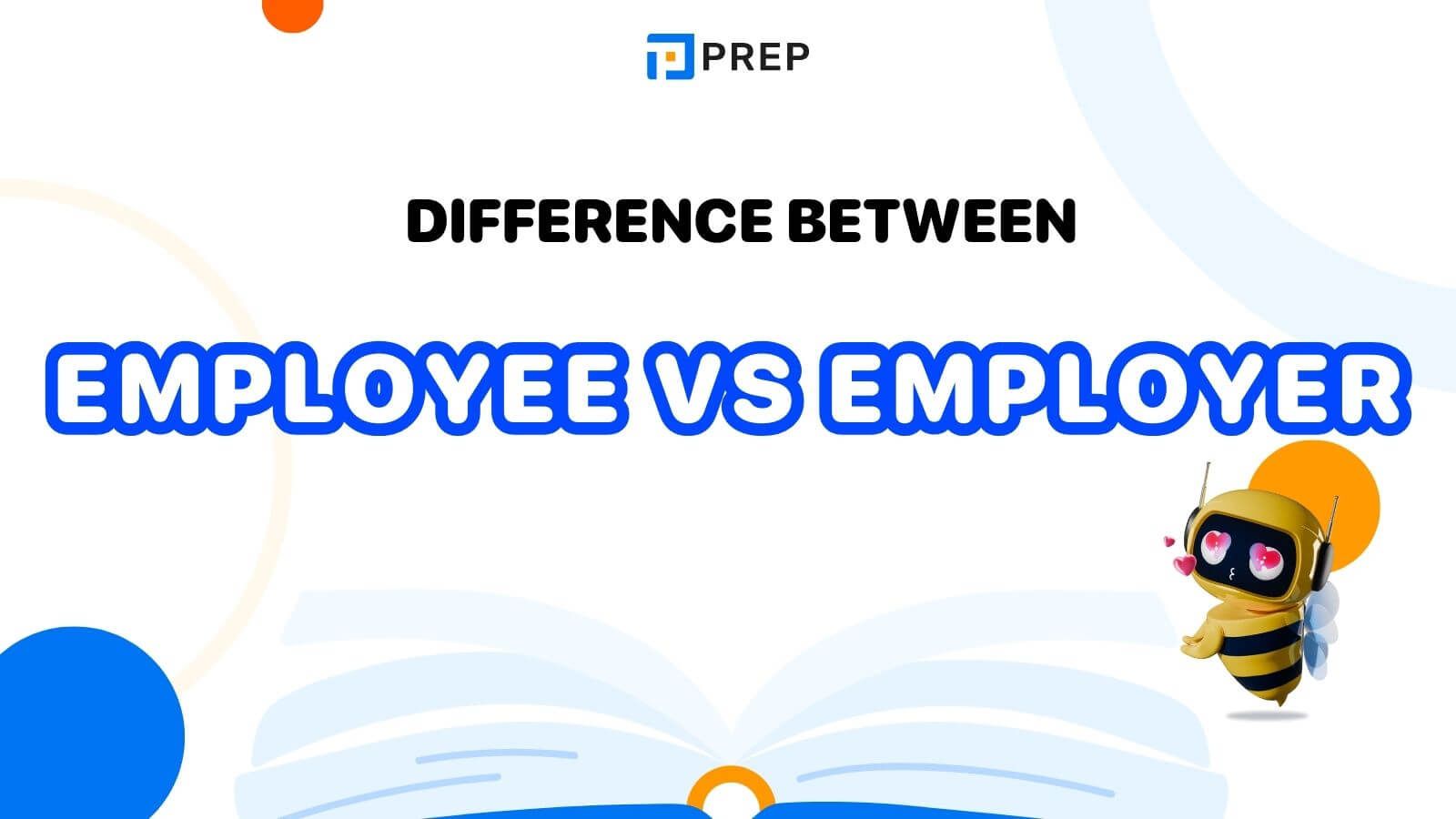
I. What is an Employee?
"Employee" is pronounced /ɪmˈplɔɪ.iː/ and serves as a noun, describing an individual who performs work for another person or organization under a formal contract or agreement. This term identifies individuals engaged in executing specific duties or tasks in exchange for compensation. The word distinguishes those who work for a business or individual from those who own or manage it.
-
The number of employees in the company has trebled over the past decade.
-
Some of their employees do not have insurance.
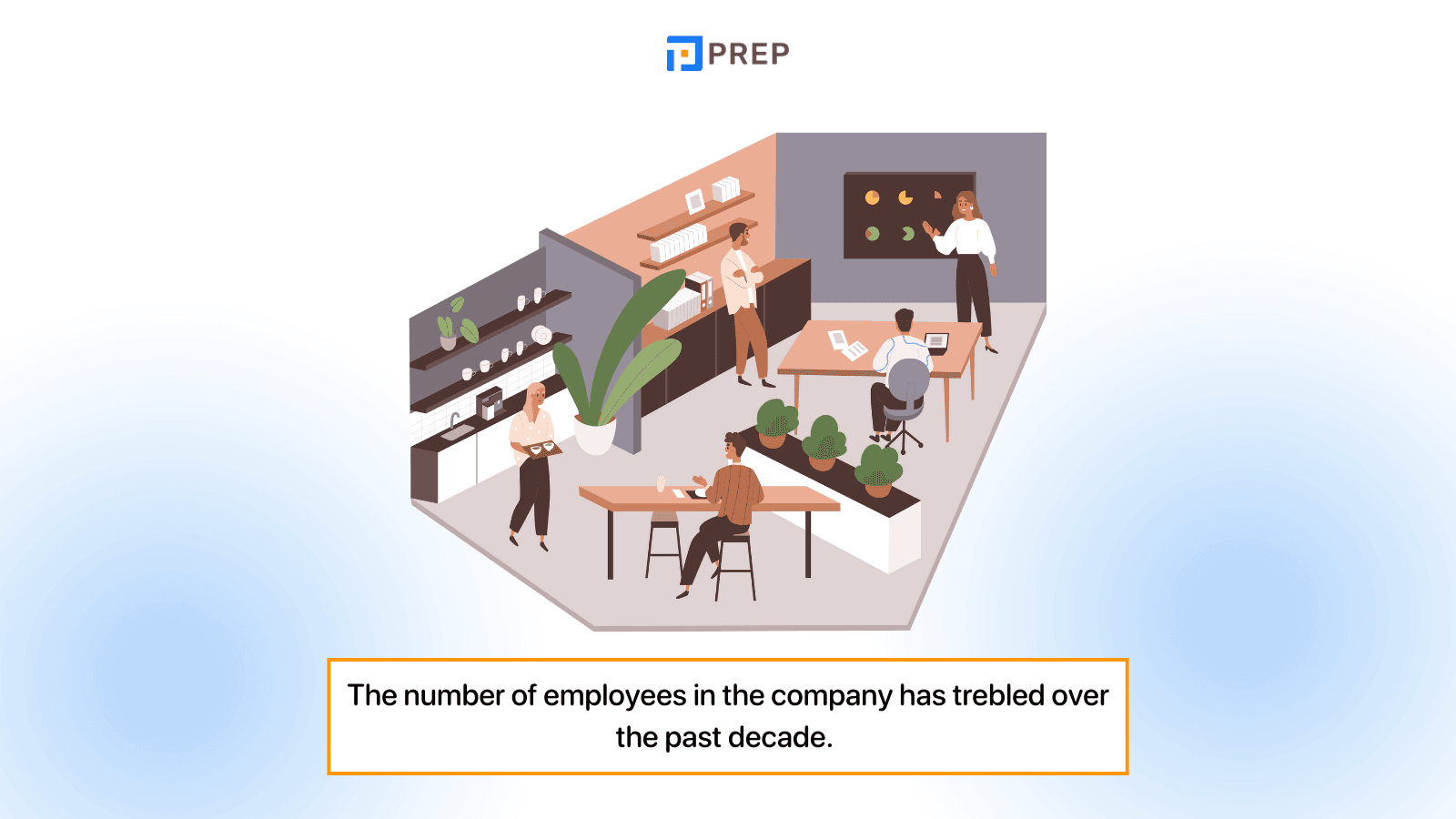
1. Words and phrases go with Employee
Understanding Employee requires examining its common collocations and usage patterns.
|
Words and phrases go with Employee |
Meaning |
Example |
|
an employee of |
A person who works for a specific organization or entity. |
Anna is an employee of the marketing department at the company. |
|
have/ recruit/ train employees |
To possess, hire, or provide training for individuals who work for an organization. |
The company organizes workshops to train employees in new software skills. |
|
a government/ company/ council employee |
An individual who works for a government agency, a private company, or a council. |
As a government employee, he has access to a wide range of public services. |
|
a full-time/ part-time employee |
A worker who is engaged on a full-time basis (usually 40 hours a week) or a part-time basis (fewer hours, often with flexible schedules). |
She was promoted to a full-time employee after working part-time for six months. |
|
a former/ new/ prospective employee |
A previous employee, a recently hired employee, or a candidate being considered for employment. |
A former employee of the company shared her experiences in a recent interview. |
|
a senior/ experienced employee |
An employee who holds a higher position or has extensive experience in their field. |
As a senior employee, he often mentors younger colleagues. |
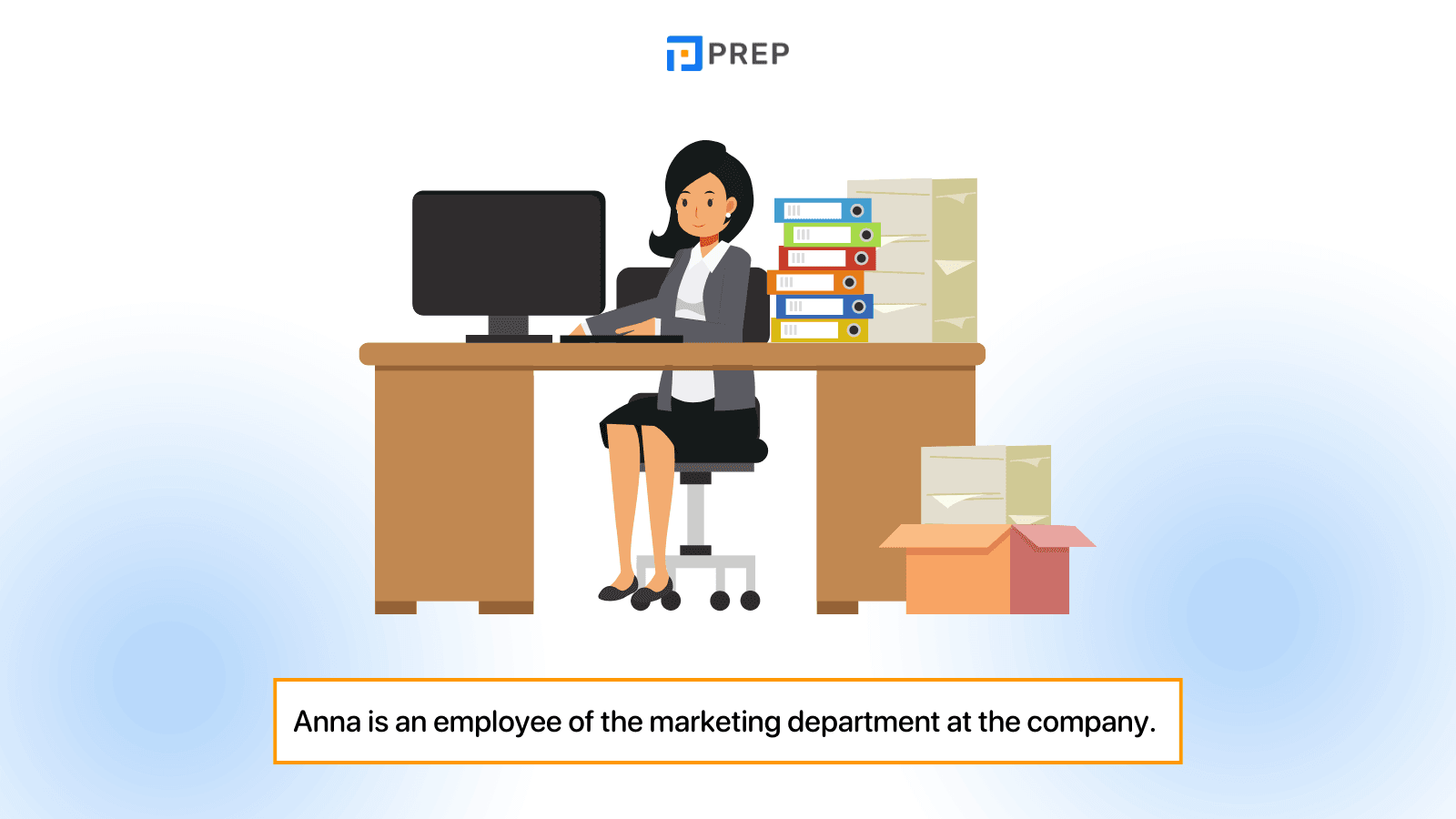
2. Collocations with Employee
Professional contexts demand precise language when discussing employee relationships and roles.
|
Collocations with Employee |
Meaning |
Example |
|
administrative employees |
Workers who perform administrative tasks, such as clerical work, scheduling, and office management within an organization. |
The company hired more administrative employees to handle the increased workload. |
|
airline employee |
An individual who works for an airline, which may include roles in customer service, flight operations, or maintenance. |
The airline employee helped us with our luggage at the check-in counter. |
|
casino employee |
A worker who is employed at a casino, which may include roles such as dealers, security personnel, or customer service representatives. |
A casino employee escorted the winner to the manager's office. |
|
civilian employee |
A non-military worker, often employed by government agencies or organizations, who performs functions necessary for the operation of those entities. |
The military base employs several civilian employees in administrative roles. |
|
contract employees |
Workers who are hired on a contractual basis, typically for a specific period of time or for a particular project, rather than as permanent staff. |
Contract employees are hired for a specific project and have a fixed-term agreement. |
|
current employee |
An individual who is currently employed by a particular organization or company. |
The company offers benefits to both current employees and retirees. |
|
disgruntled employee |
A worker who is dissatisfied or unhappy with their job or workplace conditions. |
A disgruntled employee leaked confidential information to the press. |
|
eligible employees |
Employees who meet certain criteria, such as length of service or particular qualifications, making them qualified for specific benefits or programs. |
Only eligible employees can participate in the company’s stock option program. |
|
employee contribution |
The input, effort, or resources provided by employees, which may refer to both financial contributions and participation in workplace initiatives. |
Employee contributions to the retirement plan are matched by the employer. |
|
employee engagement |
The level of commitment, involvement, and enthusiasm that employees have toward their work and the organization. |
High levels of employee engagement lead to better performance and lower turnover. |
Refer to more collocations with Employee by clicking on the link below!
COLLATIONS WITH EMPLOYEE AT CAMBRIDGE DICTIONARY!
II. What is an Employer?
"Employer" is pronounced /ɪmˈplɔɪ.ɚ/ and functions as a noun, denoting a person, company, or organization that hires individuals to perform work, typically in exchange for compensation. This term identifies the party in an employment relationship that provides jobs, oversees work, and compensates employees for their services. Employers establish work expectations, determine employment terms, and provide various benefits or incentives for their workforce.
-
Susan was fired after she was caught stealing from her employer.
-
Many employers consider hands-on experience to be just as useful as academic qualifications.
1. Words and phrases go with Employer
Mastering Employer terminology requires understanding its contextual applications and common combinations.
|
Words and phrases go with Employer |
Meaning |
Example |
|
big/ large/ major employer |
A company or organization that employs a significant number of workers, often having a large impact on the local or national economy. |
The factory is a major employer in the town, providing jobs for over 2,000 people. |
|
private sector/ public sector employer |
An employer operating in the private sector (businesses not owned or operated by the government) or in the public sector (government organizations and agencies). |
Emi prefers working for a private sector employer because of the higher salary and benefits. |
|
a previous/ current/ new employer |
Referring to an employer that one has worked for in the past (previous), is currently working for (current), or is about to start working for (new). |
Peter is excited about starting his job with his new employer next week. |
|
potential/ prospective/ future employer |
An employer that one may work for in the future, either being considered for employment or anticipated to offer job opportunities. |
Anna impressed the potential employer with her experience and skills during the interview. |
|
work for/ have an employer |
To be employed by a specific company or organization (work for) or to possess a job with a company (have an employer). |
Richard has worked for the same employer for over ten years and has built a successful career. |
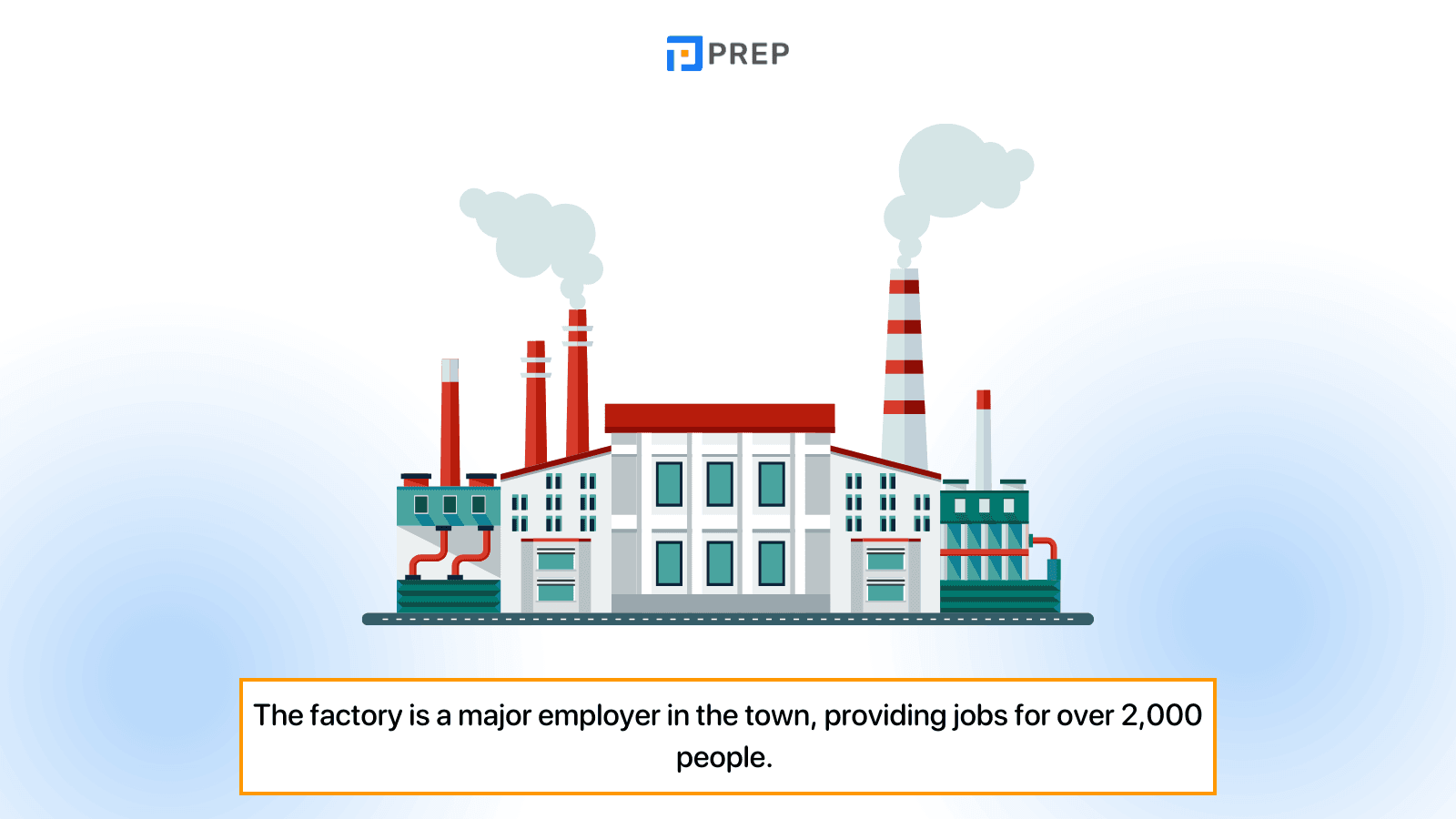
2. Collocations with Employer
Professional communication demands precision when discussing employer relationships and organizational structures.
|
Collocations with Employer |
Meaning |
Example |
|
current employer |
The individual or organization that a person is currently working for. |
Sana asked her current employer for a letter of recommendation. |
|
employer mandate |
A requirement or policy that obligates employers to provide certain benefits or adhere to specific regulations, often related to health care or labor laws. |
The new employer mandate requires companies to provide health insurance to all employees. |
|
future employer |
An organization or individual that one plans to work for in the future or is a candidate for employment. |
During the interview, John tried to make a good impression on his future employer. |
|
industrial employer |
An organization that operates within the industrial sector, typically involved in manufacturing or production processes. |
The industrial employer offers a range of job opportunities in manufacturing and production. |
|
large employer |
A company or organization that employs a significant number of workers and often has considerable influence in the job market. |
As a large employer, the corporation provides numerous benefits to its employees. |
|
major employer |
A significant organization in terms of the number of employees it hires, often playing a crucial role in the local economy. |
The hospital is a major employer in the region, with over 3,000 staff members. |
|
potential employer |
An organization or individual that may offer a job in the future, currently under consideration for employment. |
Xavia researched the company thoroughly before meeting with her potential employer. |
|
previous employer |
An individual or organization that a person worked for before their current job. |
Jackson received a positive reference from his previous employer, which helped him get the new job. |
|
private employer |
An organization or individual in the private sector that hires employees, as opposed to government or public sector employers. |
Working for a private employer often comes with more flexibility in work hours. |
|
prospective employer |
An organization or individual that is being considered for potential employment, often involved in the hiring process. |
Manoa sent her resume to a prospective employer who was hiring for a similar position. |
Refer to more collocations with Employer by clicking on the link below!
COLLATIONS WITH EMPLOYER AT CAMBRIDGE DICTIONARY!
VII. The difference between Employee and Employer with examples
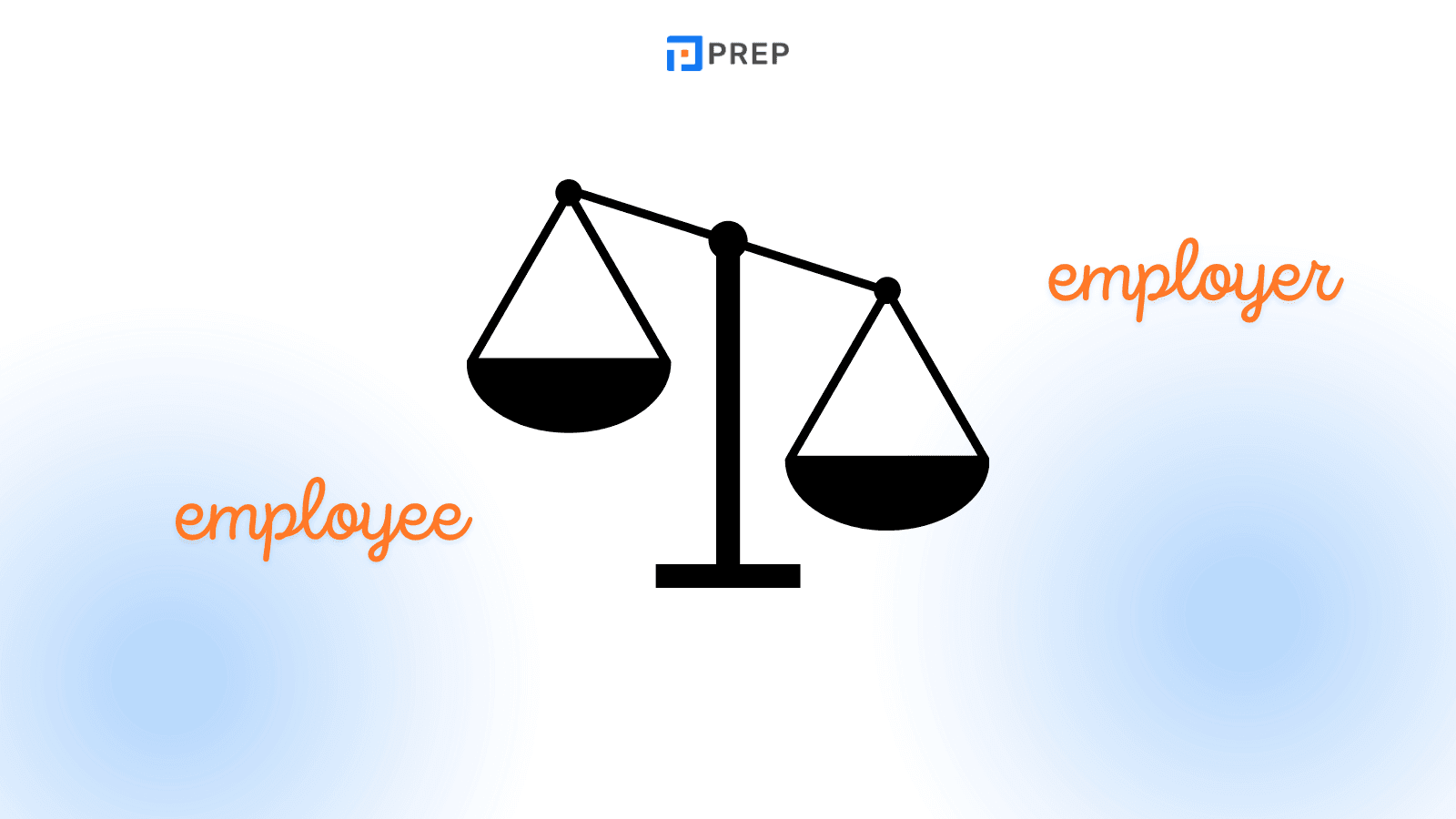
Understanding the fundamental difference between Employee and Employer clarifies workplace relationships and professional responsibilities. These terms represent opposite sides of the employment equation, each carrying distinct roles, responsibilities, and expectations.
|
Employee vs Employer |
Employee |
Employer |
|
Definition |
A person who works for another organization, company, or individual. |
A person or organization that hires employees to carry out work. |
|
Role |
Performs assigned tasks and duties in exchange for compensation. |
Provides work opportunities and manages workforce operations. |
|
Responsibilities |
Follows company policies, completes assigned work, meets performance standards. |
Creates job opportunities, ensures workplace safety, provides compensation and benefits. |
|
Authority Level |
Reports to supervisors and follows organizational hierarchy. |
Sets organizational policies, makes strategic decisions, manages operations. |
|
Example |
John is an employee at a software company, where he works as a software developer. |
Ms. Anna is a good employer who employs John for the software company. |
The relationship between employee and employer forms the foundation of modern workplace structures. Employees contribute their skills, time, and effort to achieve organizational goals, while employers provide the framework, resources, and compensation necessary for productive work environments.
VIII. Exercises on Employee and Employer
Mastering the concepts, usage, and distinctions between Employee and Employer requires practical application through targeted exercises.
1. Exercises
Exercise 1: Choose the appropriate word to fill in the blanks: Employee or Employer.
-
As an __________, she is responsible for completing tasks assigned by her manager.
-
The __________ is required to provide a safe working environment for all staff.
-
An __________ must follow the rules and policies set by the company.
-
The __________ organized a team-building event for all their staff members.
-
During the interview, the __________ asked about the benefits package offered by the company.
Exercise 2: Choose the correct word in parentheses to complete the sentence: Employer or Employee
-
The (employee/employer) is expected to perform their duties to the best of their ability.
-
The (employee/employer) has the responsibility to ensure that workplace safety regulations are followed.
-
When starting a new job, it’s important to understand the expectations of your (employee/employer).
-
The (employee/employer) offered a competitive salary to attract top talent to the company.
-
A (employee/employer) should provide clear instructions and support to their team members.
2. Answer keys
|
Exercise 1 |
Exercise 2 |
|
|
This comprehensive exploration has illuminated the concepts, applications, and fundamental differences between Employee and Employer. These terms represent essential vocabulary for professional communication and workplace understanding. The distinction between those who provide work and those who perform it shapes every aspect of modern employment relationships. Understanding these concepts enhances professional communication, clarifies workplace expectations, and supports career development.

Hi I'm Chloe, and I am currently serving as an Product Content Administrator at Prep Education. With over five years of experience in independent online IELTS study and exam preparation, I am confident in my ability to support learners in achieving their highest possible scores.
Comment
Premium content
View allPersonalized roadmap
Most read












